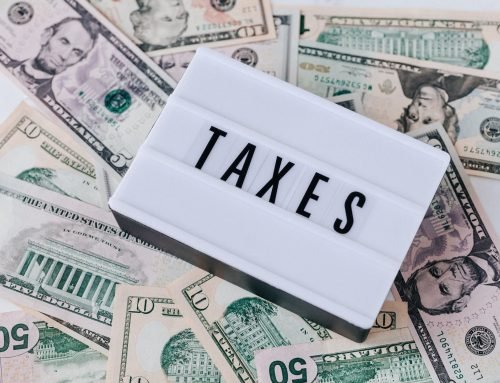 Whether you’re making seven figures or just starting out, one thing tends to be universal: how quickly your paycheck disappears.
Whether you’re making seven figures or just starting out, one thing tends to be universal: how quickly your paycheck disappears.
Here are some practical, doable and even fun ways to stretch your next paycheck further.
1. Break Out the Coupons
Thanks to sites like Coupon Sherpa, Coupons.com and others, using coupons has never been easier. And you’d be surprised by how much coupons can save you — immediately. “Whether it’s retail, restaurant or grocery purchases, you can find a coupon for pretty much anything,” said Kendal Perez, a savings expert with Coupon Sherpa.
Coupon Sherpa even has an app for your smartphone. “You’ll get instant access to savings like an extra 20 percent off with a Macy’s coupon, or $10 off oil changes, car batteries and preventative maintenance services with a Goodyear coupon,” said Perez.
She said grocery coupons can also be found online now, as well as weekly ads for stores like Target, Walmart and others. The age of scissors is gone. You can now print the ads yourself, give a coupon code or sometimes just show your phone at checkout, said Perez.
And if you’re still not sure about the power of coupons, consider that a Syracuse University Online Business School study found that coupons saved consumers $3.6 billion in 2014. That’s a lot of oil changes.
2. Make Staying In the Main Event
Whether it’s the movies, a dinner date or go-kart racing with friends, leaving the house for entertainment or food can decimate a paycheck faster than Uncle Sam’s taxman. So, here are a few ideas for how to stay in and still have fun.
Find an excellent TV series to binge. “When you’re really into a series, you actually want to stay in, rather than blowing money out at restaurants, bars, movie theaters, etcetera,” said Brian Davis, a finance blogger and real estate expert with Spark Rental. Invite friends over for the show — the popcorn will be a fraction of the cost of the theater.
Tackle that to-do list. “Pick three items or projects from your to-do list that you’ve been procrastinating on and commit to accomplishing them before you allow yourself the next evening out,” said Davis. Just make sure they’re not expensive projects.
Commit to two weeks of “spend-free dates,” which means that whatever you do with your significant other or friends, you spend no money. It’s something that has saved a lot of money quickly for Kelsey Goeres, social media and PR associate at MyCorporation, a startup consulting business.
“My boyfriend and I do a lot of cooking at home, playing card games or sports, going on hikes, picnics, checking out free art galleries and museums and more. Whenever we do this for a month, I always come out on top. It’s amazing how much we tend to spend on dates,” she said.
3. Do It Yourself (Seriously)
Chances are that you pay good money for many things that you could (fairly) easily do yourself.
“Whether it’s grabbing a morning latte, dining out or getting your nails done regularly, everyone has a vice. Once you identify your spending weakness and figure out a way to do the service yourself, however, your paycheck will thank you,” said Perez.
Her first suggestion is to put a check on your daily coffee habit. A Starbucks Caffè Latte Grande (medium) will run you about $3.65. But, with the average cost of a pound of coffee coming in at $4.30 and milk at $3.23 per gallon (in the Midwest, according to the Department of Labor), you’ll use about 20 cents worth of milk and 5 cents worth of coffee per cup, if you make your own drink. You just saved about $3 a cup.
Perez admits that you might not make a latte that’s as good as the ones at Starbucks, but you’re going to love your bank account at the end of two weeks, especially if you throw in some brown bag lunches, do your own nails and wash your own car.
“Ultimately, doing as much as you can yourself, and avoiding paying others for services, will make you feel richer every month. Plus, when you do splurge, it will be more special, since it’s not a regular occurrence,” said Perez.
4. Shock Yourself
Debit card, credit card, Apple Pay — in this cash-hating world, it’s easy to swipe away your paycheck without realizing exactly how much you’re spending. That’s why tracking your spending is on top of most money-saving experts’ lists.
Whether you use Mint, FlexScore or another money-managing app, or just study your bank and card statements, the first step in cutting back is to shock yourself at what you’re spending your paycheck on. And you will definitely be shocked, said Adam Vega, a certified financial planner and wealth manager with United Capital Financial Life Management.
“When you know where your money is going, you are better equipped to modify your behavior, so that you are spending your hard-earned money on the things that are truly important to you,” he said.
Ideally, Vega added, you would track every penny spent for a month or more. But this shock-and-save approach will work in the short term by forcing you to look back through your spending history for the previous month. Add up the amounts you spent on everything from coffee to carwashes and decide if it was really worth it.
“You can only spend every dollar once, and knowing what you want most out of your financial life starts with knowing where you are in your financial life,” said Vega.
5. Turn Saving Into a Game
Philadelphia accountant Anthony Copeman promotes a fun strategy based on a challenge: save every $5 bill you get as change. For instance, he said, when you go to the movies and buy a $12 ticket with a $20 and receive $8 back, you would save the $5. Pay cash as often as you can and always save the $5 bills.
“This is a great game to play with your friends and family to see who can stretch their money further without spending all of their paycheck,” said Copeman, who notes that the trick will help you understand the value of saving. “It shows that every dollar earned doesn’t have to be spent.”
And, if you want to put a new twist on your budgeting efforts, try a method promoted by entrepreneur and GreenPal founder Gene Caballero. To save, he forced himself to pay cash as much as possible and then convert all the ones and fives he got as change into change — quarters, nickels, dimes — which he would deposit in a jug at home.
The result was instant savings, because it forced him to avoid breaking a $20.
“No one wants 23 quarters in their pockets,” he said. “Just a fun little way I would trick myself to be more frugal and also save.”
6. Put the Brakes on Online Shopping
These days, it’s all too easy to click your paycheck away at online retailers, especially ones for which you already have a credit card or bank account on file. One click, and there goes another day’s take-home pay.
That’s why Katie Ross, education and development manager with national financial education nonprofit American Consumer Credit Counseling, said that one of her strongest suggestions for making a paycheck stretch further is to pause every time you are about to click that “Buy” button.
“If you find something online that you want but might not need, put it in your cart and leave it there without finalizing the purchase for a couple days,” she said. This will give you time to consider if you can really afford the item or if it’s truly worth the cost.
The move might even save you money if you ultimately decide to purchase.
“Many online retailers will email a 10 percent to 15 percent off coupon to registered users who leave items in their carts for 48 hours in order to entice them to complete the sales,” she said.
Next Step: Speak to a Financial Advisor
This article was originally posted on GOBankingRates.com
Disclosure: This material was created for educational and informational purposes only and is not intended as ERISA, tax, legal or investment advice. LPL Financial and its advisors are providing educational services only and are not able to provide participants with investment advice specific to their particular needs. If you are seeking investment advice specific to your needs, such advice services must be obtained on your own separate from this educational material.



